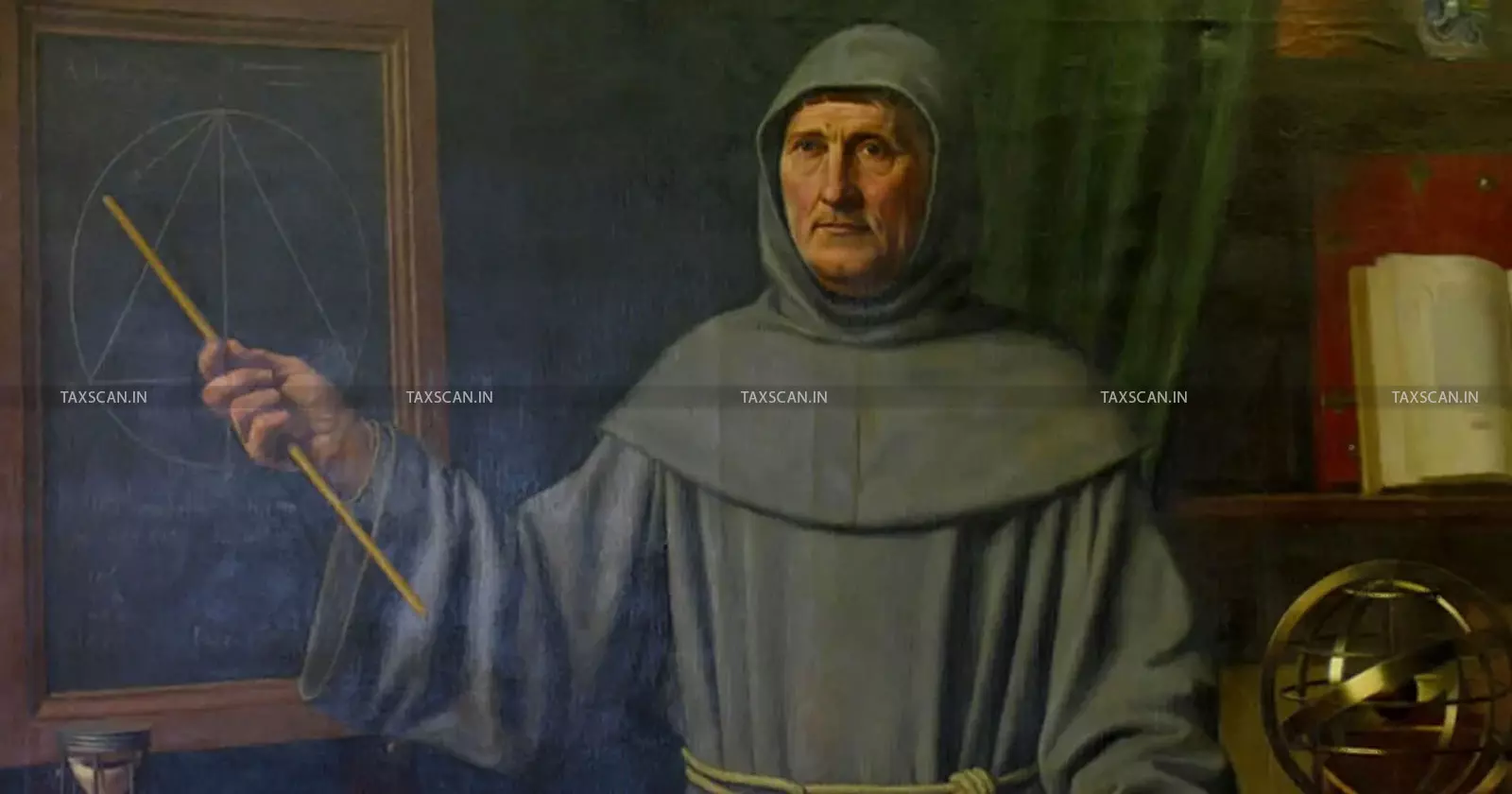Luca Pacioli: The Father of Accounting and His Enduring Legacy for Modern Chartered Accountants
Pacioli is a 15th-century Italian mathematician laid down the foundations of double-entry bookkeeping

In the halls of accounting history, one name resonates across centuries, Luca Pacioli. Widely known as the Father of Accounting, this 15th-century Italian mathematician laid down the foundations of double-entry bookkeeping, a system that remains the backbone of modern accounting practices. For Chartered Accountants (CAs) navigating today’s complex financial ecosystems, Pacioli’s methods offer not only a structural legacy but also a philosophical foundation for transparency, accuracy, and accountability.
A Monk, a Mathematician, and a Visionary
Born in 1445 in Sansepolcro, Italy, Fra Luca Bartolomeo de Pacioli was a Franciscan friar with a deep love for mathematics. His early years saw him study under some of the greatest minds of his time, and eventually, he became a teacher himself. But it was his association with none other than Leonardo da Vinci, yes, the Da Vinci, that elevated his intellectual journey. Pacioli was not just a number cruncher; he was a Renaissance thinker who saw numbers as a language of order and precision in a chaotic world.
GST Litigation Secrets – Winning Strategies from Real Cases! Click here
In 1494, Pacioli published his work "Summa de Arithmetica, Geometria, Proportioni et Proportionalità" (Summary of Arithmetic, Geometry, Proportions and Proportionality). It was a comprehensive textbook covering everything from basic arithmetic to algebra and geometry. But what etched his name in history was a section in the book titled "Particularis de Computis et Scripturis", the first known published description of double-entry bookkeeping.
Double-Entry Bookkeeping: The Revolution That Changed Accounting Forever
Before Pacioli’s time, business transactions were recorded in ad hoc, unstandardized ways. The double-entry system introduced by him required that every transaction have equal and opposite effects in at least two different accounts, for instance, when cash is received, an asset increases and a revenue is recorded.
This system, summarized in the famous accounting equation: > Assets = Liabilities + Equity,
enabled businesses to maintain financial integrity, trace discrepancies, and evaluate profitability more accurately.
Even today, this method remains the gold standard in accounting, embedded in every accounting software, balance sheet, and journal entry.
Pacioli’s Principles That Guide Modern CAs
Let’s break down some principles established by Pacioli that continue to influence the work of today’s Chartered Accountants:
1. Completeness and Accuracy
Pacioli stressed the need to record every transaction in detail, with dates, values, and parties involved. This insistence on accurate documentation is central to modern auditing, financial reporting, and even forensic accounting.
2. Consistency
One of his key teachings was that entries should be recorded in a consistent and logical format. Today, this forms the basis of Generally Accepted Accounting Principles (GAAP) and International Financial Reporting Standards (IFRS), which require standardized treatment of financial information.
3. Duality Principle
Pacioli’s famous double-entry system rests on the principle that every debit has a corresponding credit. This duality principle prevents errors and provides a self-balancing mechanism, allowing CAs to detect and rectify discrepancies efficiently.
4. Audit Trail
Pacioli’s system demanded that business owners keep daily journals and ledgers with proper cross-referencing. This laid the foundation for today’s audit trail practices, which help in detecting fraud, ensuring compliance, and maintaining corporate governance.
5. Ethical Responsibility
Though he was a mathematician, Pacioli’s monastic background instilled in him a strong sense of ethics. His works highlight the need for honesty, diligence, and trustworthiness, virtues every CA is expected to uphold even today.
Why Luca Pacioli Still Matters in the Age of AI and Blockchain
With AI-driven audits, automated bookkeeping, and blockchain-based financial records entering the field, one might ask, is Pacioli still relevant?
Absolutely.
In fact, the philosophy behind his system of accountability, transparency, and duality, is even more important in today’s data-heavy, complex financial world. Technologies may evolve, but the principles of balancing entries, ensuring ethical transparency, and maintaining reliable financial records remain foundational.
Chartered Accountants in India and around the world still rely on double-entry systems in their day-to-day work. Whether it's preparing income statements for a startup or auditing the books of a multinational corporation, the invisible hand of Pacioli guides every entry.
Luca Pacioli didn’t invent accounting, but he gave it its first real structure, one that could be studied, taught, and replicated across businesses. His work transformed bookkeeping from a rudimentary skill to a respected profession. In many ways, the professional identity of a Chartered Accountant began with him.
Educational institutions, from commerce colleges to ICAI classrooms, still draw upon Pacioli’s principles when teaching the basics of financial accounting. His influence has also reached law, taxation, corporate governance, and international finance.
Conclusion
Over 500 years ago, in an Italian monastery, a friar sat down to codify a system that would become the bedrock of business across the globe. Today, every Chartered Accountant, from Mumbai to Milan, stands on the shoulders of Luca Pacioli, whether they know it or not.
He taught us that numbers aren’t just figures. They are stories of businesses built, of frauds averted, of profits earned and losses absorbed. For the modern CA, Pacioli’s legacy is a reminder that behind every balance sheet lies a duty: to be honest, accurate, and fair.
Support our journalism by subscribing to Taxscan premium. Follow us on Telegram for quick updates


